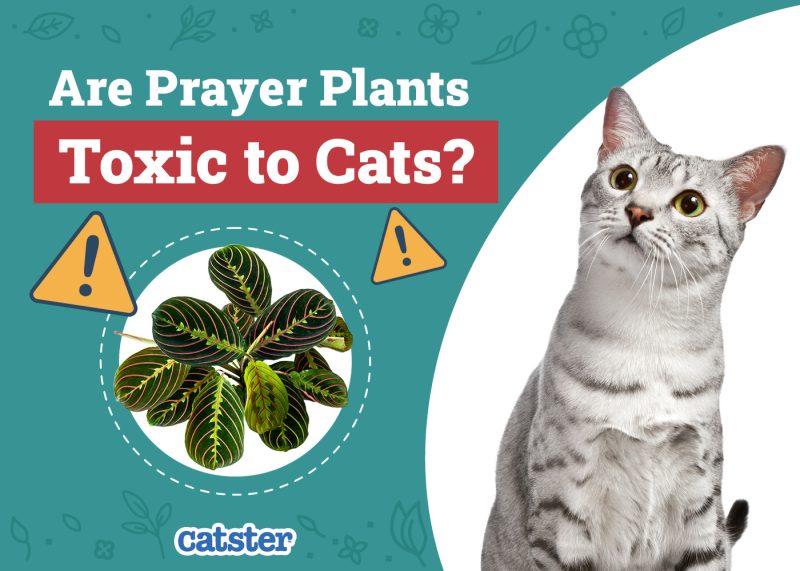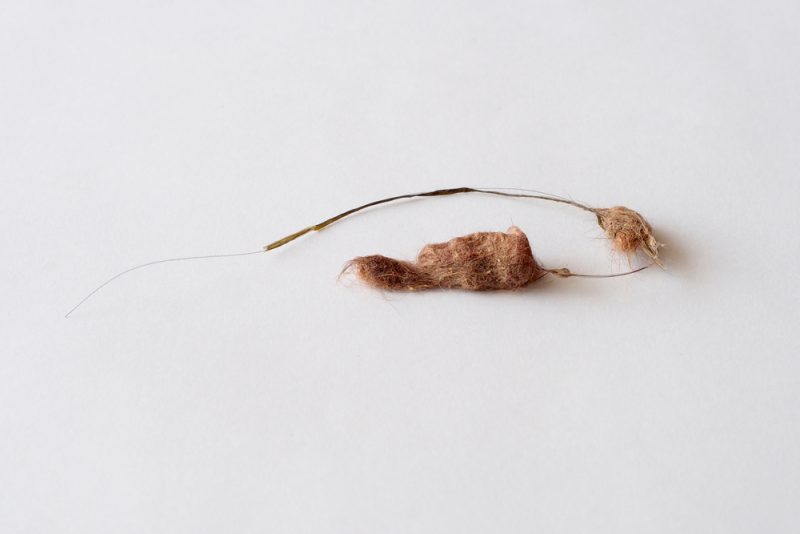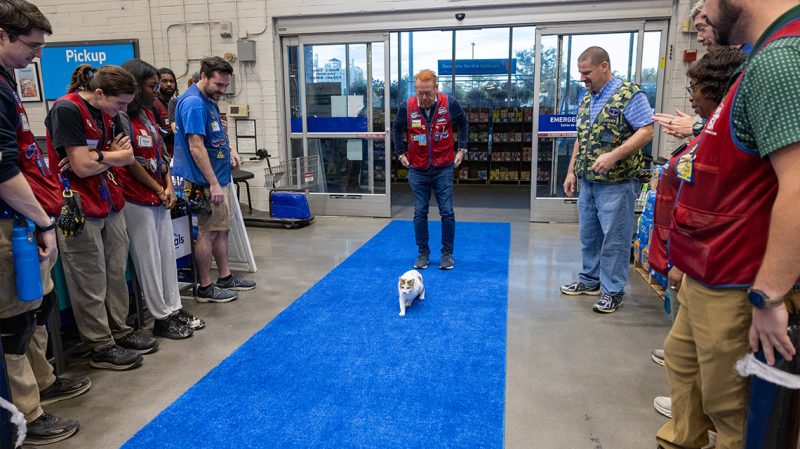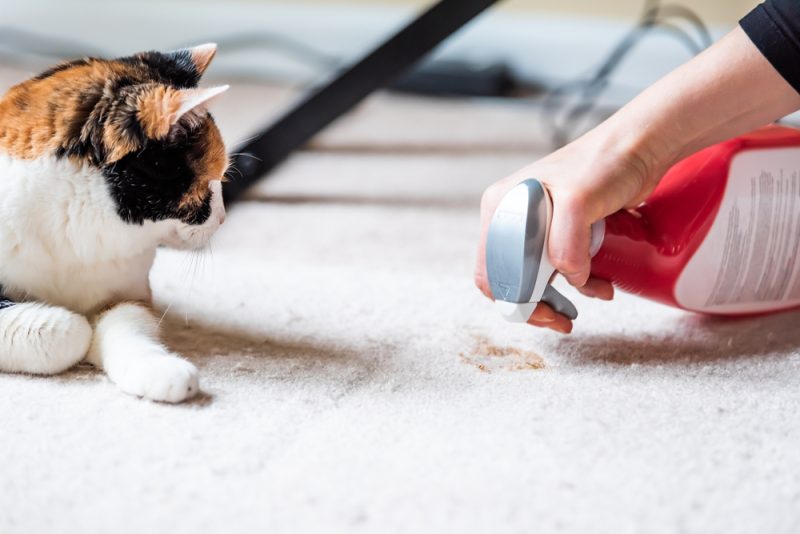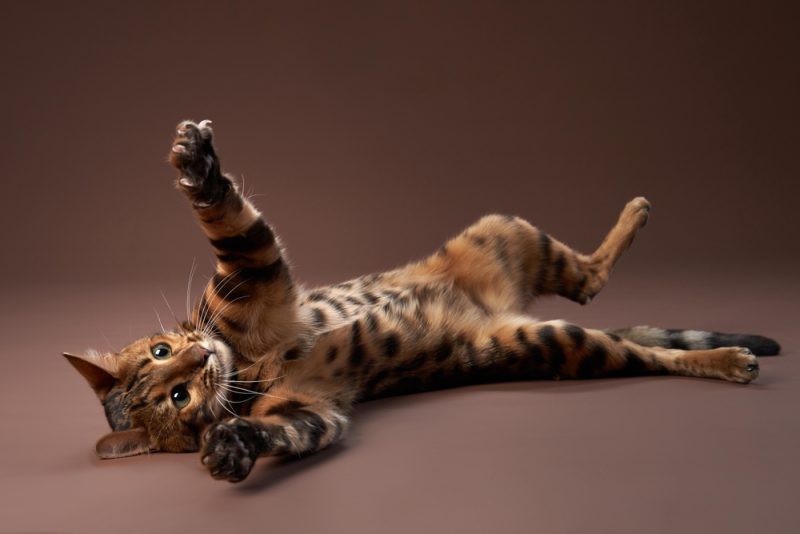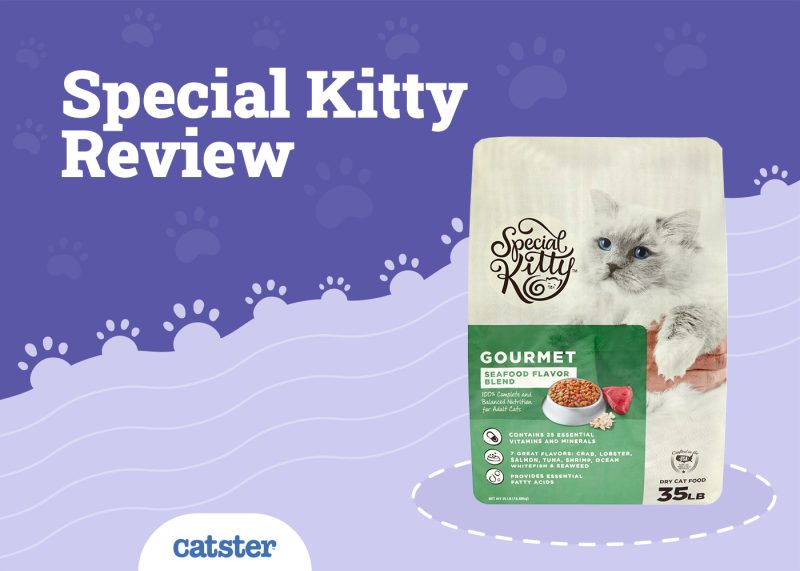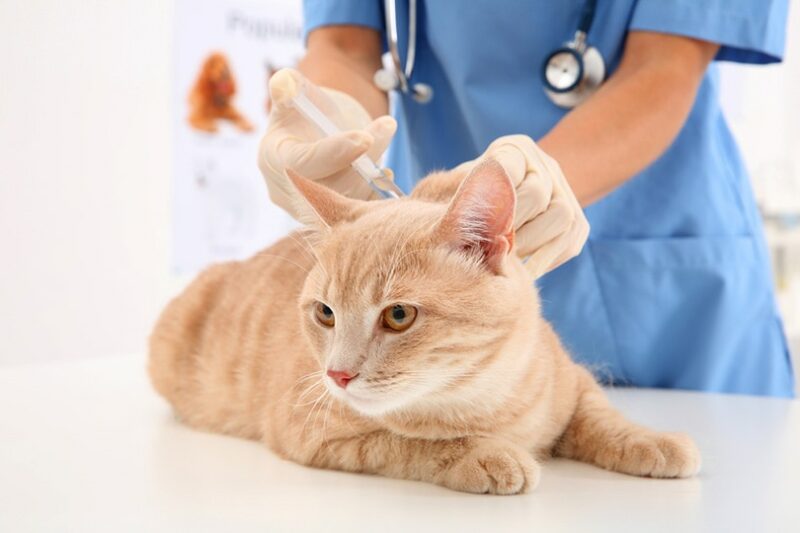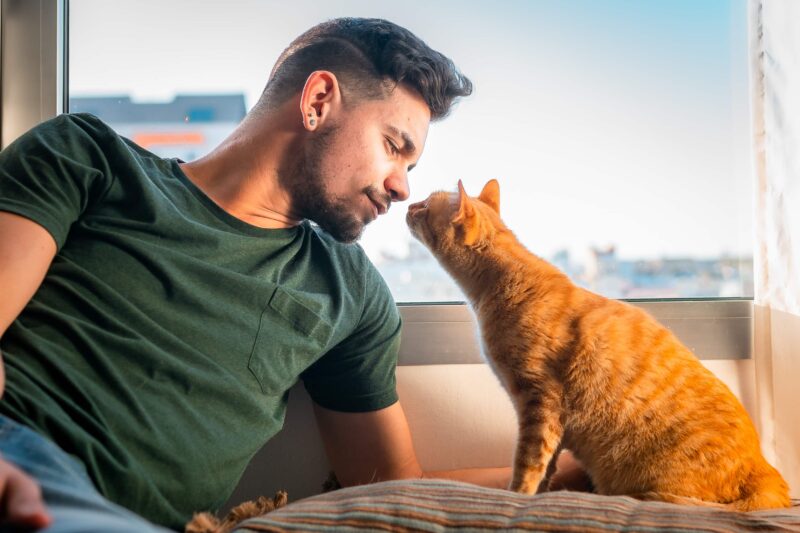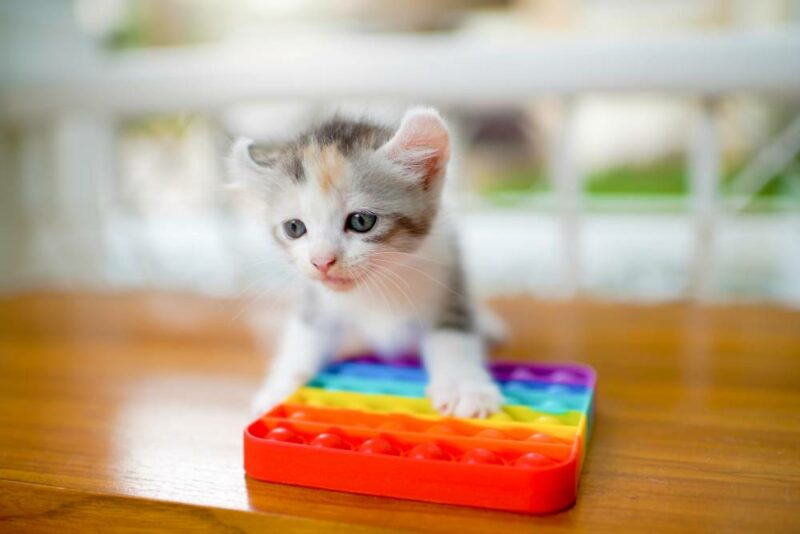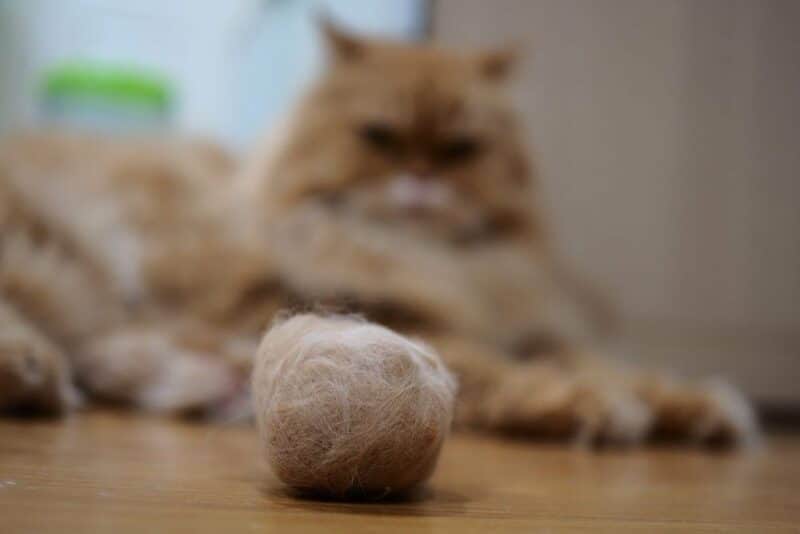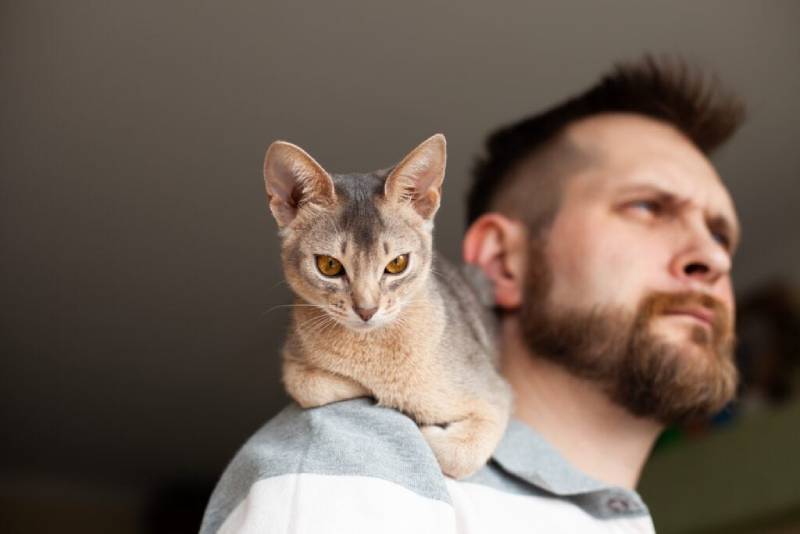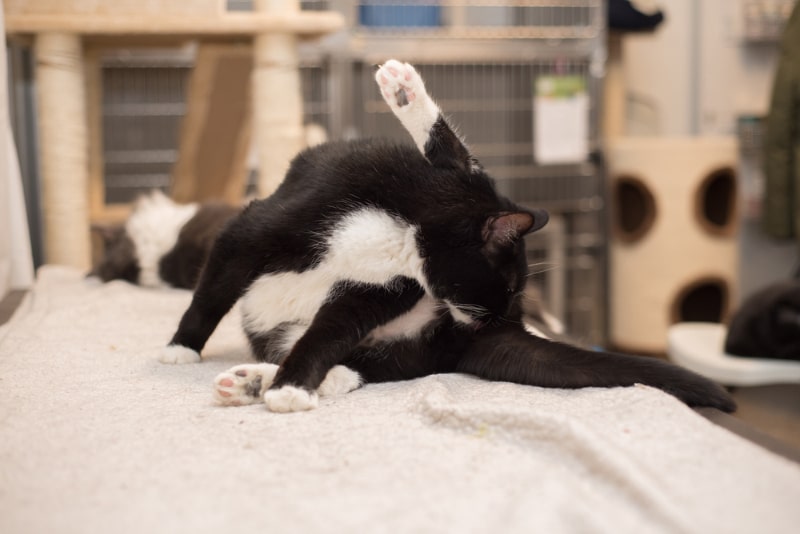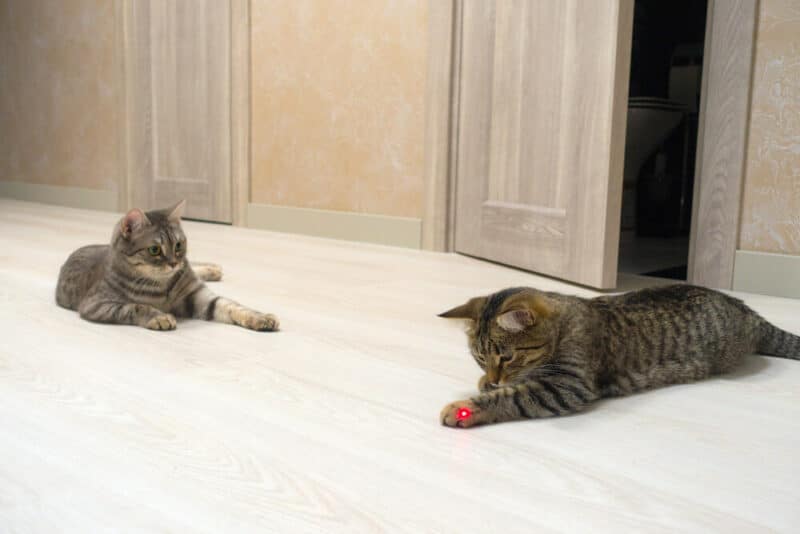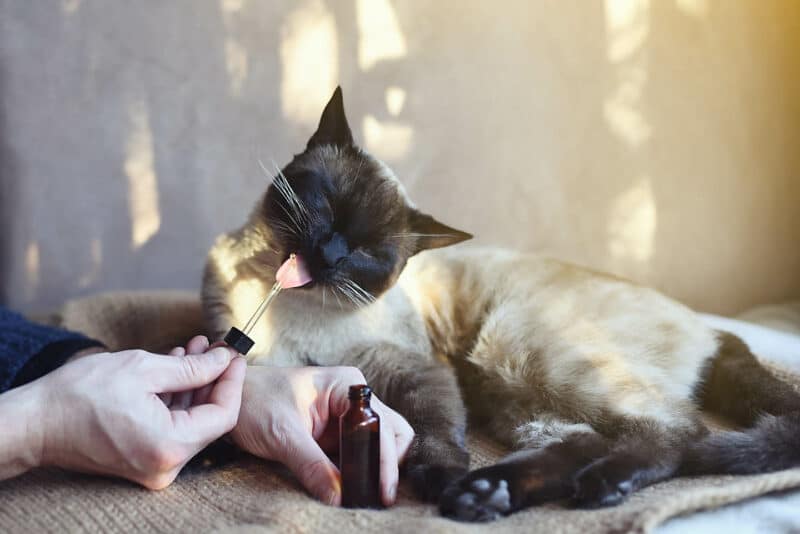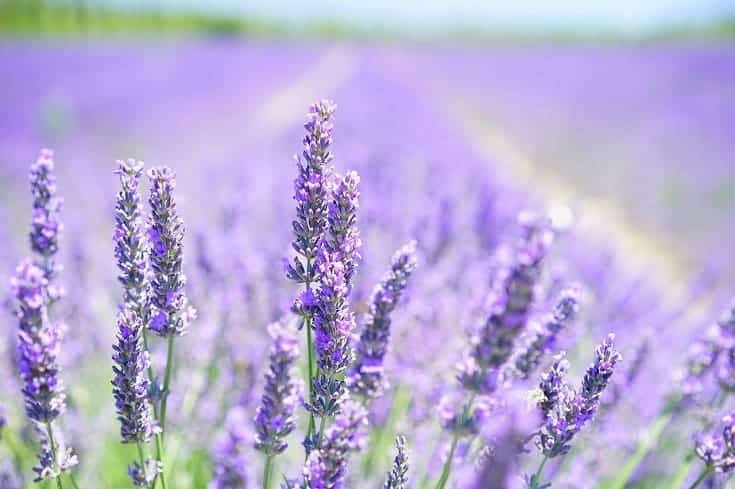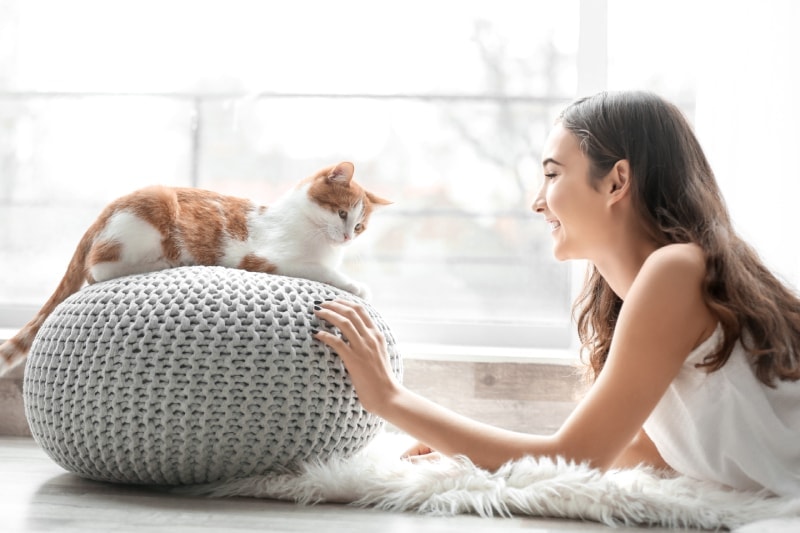In this article
The prayer plant, Maranta leuconeura, enjoys the cooler, even temperatures found inside your home and indirect light through a shady window or a sheer curtain. It typically grows to about 12 inches in height with broad, dark green leaves that fade in the sun, making it perfectly suitable for a houseplant.
But, is it safe to keep in your home? Or is the prayer plant toxic to cats? Well, you’ll be pleased to know that the prayer plant is non-toxic for cats and is perfectly safe!
There are several health benefits to keeping indoor plants, but finding ones that are non-toxic to cats is essential when you share your home with them. Let’s learn more about other safe houseplants, the most common toxic ones to avoid, and how to help prevent plant poisoning in cats.

Other Houseplants Safe for Cats
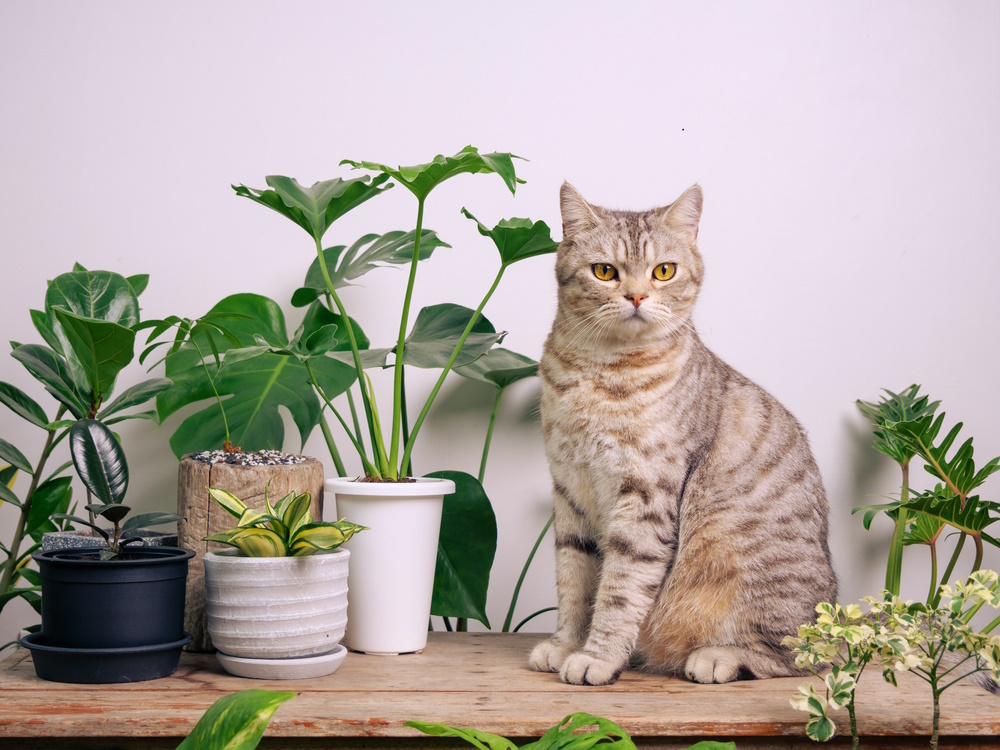
Whether you are looking for a new decoration for your desk or a focal point of the living room, a plant can go a long way to improving your mood and the air quality. While your choices may be limited compared to those who don’t have felines, there is still a long list of beautiful indoor plants that are safe for cats, so there’s sure to be something perfect for your décor and expressive style.
- Christmas cactus
- Kimberly queen fern
- Ponytail palm
- Polka dot plant
- Roses (thorns removed)
- Zebra cactus
- Boston fern
- Spider plant
- Succulents (some)
- Herbs (some)
- Calathea prayer plant
- Rattlesnake plant
- Birds nest fern
- Bamboo palm
- Majesty palm
- Chinese fan palm
- Neon prayer plant
- Sunflowers
- Dwarf banana plant
- Parlor palm
These are only a few of the houseplants you can choose from. If you have your eye on a particular plant, be sure to research it before bringing it home. Something new to their domain might be especially interesting, so cats will be more likely to inspect a new plant. Ensuring it’s non-toxic for cats is the only way to prevent plant poisoning entirely.

Toxic Household Plants to Avoid
While many houseplants are safe to keep around your home, there are some you want to avoid. You should always assume that a plant will attract your kitty’s attention, even if it is out of their line of sight or they haven’t paid much attention to it in the past. If you learn that a plant is toxic, you should move it to a location where they don’t have access to it or, better yet, remove it from the house entirely.
Toxic indoor houseplants can cause plant poisoning that, at the very least, will be pretty uncomfortable for cats and might also be quite dangerous. You should use caution when bringing new plants to your house and always reference reliable sources to ensure they are safe for your entire family, including the furry, four-legged residents of your home.
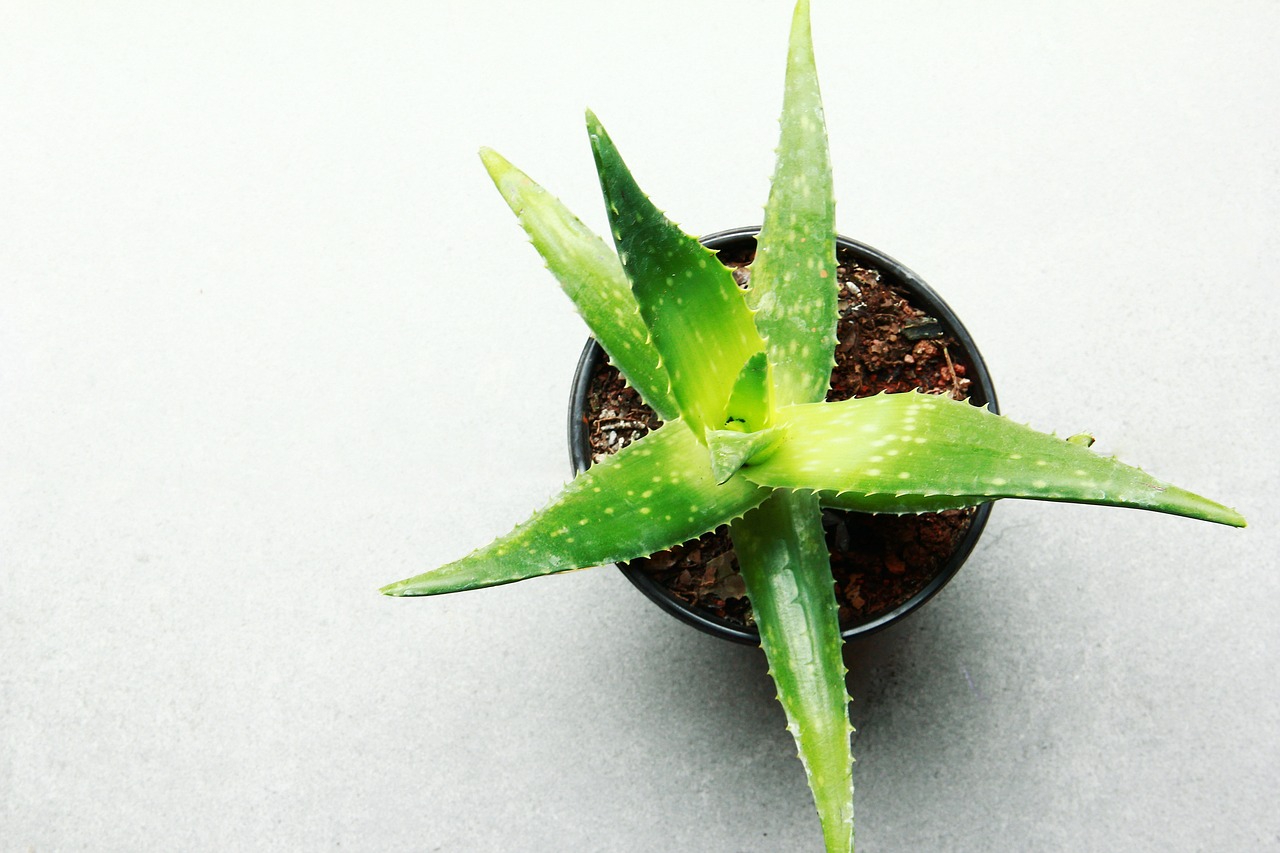
- Lilies: Even the pollen from these beautiful flowers is dangerous for cats and can cause kidney failure, sometimes resulting in death. The US Food and Drug Administration warns to keep them out of the house if you have cats.
- Aloe: Aloe is beneficial for humans but can cause stomach upset and lethargy in cats. While it’s non-toxic for us, it can cause big trouble for our feline friends.
- Daffodil: Symptoms of daffodil ingestion can include abnormal heart rhythm and even convulsions. This is a highly toxic plant, definitely a plant you don’t want near your kitties.
- Sago palm: Sago palm is fatal if not treated immediately. High levels of cycasin cause liver failure that can be treated if caught early after ingestion.
- Chrysanthemum: Thankfully, tummy upset is typically mild after ingesting these bright flowers, also called mums, but your fur-baby should be monitored just in case.
- Asparagus fern: Eating the berries of this hardy fern can cause stomach upset, but just brushing up against the leaves can cause skin irritation. Maybe that’s why these are usually found in hanging pots.
- Azaleas: These flowers, and all rhododendrons, are highly toxic and can result in seizures or heart failure due to their ability to affect muscles throughout the body.
Each plant is different, but you should assume that all parts of it are toxic, including the leaves, flower petals, and stem. If you know that your pet has chewed on a houseplant, it may be enough to cause a reaction, even if they didn’t swallow any, so call a vet for more information and guidance on your next steps.
Depending on the plant and how much they were exposed to, their reaction may be mild, but it’s always best to know a vet is aware and can help if needed. They may advise you to call the ASPCA Animal Poison Control Line at (888) 426-4435.
If you need to speak with a vet but can't get to one, head over to PangoVet. It's an online service where you can talk to a vet online and get the advice you need for your pet — all at an affordable price!


Preventing Accidental Plant Poisoning
If you have indoor cats, it’s best to keep toxic plants in a garden outdoors to prevent accidental exposure. If your cats go outside, you should avoid planting them in your yard.
Friends and family may offer you a gift of cut flowers or potted plants for a holiday, celebration, or due to illness. It is always okay to thank them for their generosity but let them know it can be toxic to your pet, and you’ll need to put it in another room or outside. They may have felines of their own and not realize the plant is unsafe!
Remember, that just because a plant is safe for dogs doesn’t mean it is safe for cats and vice versa. You may think that a plant is safe for your pup, but it might be deadly for a feline. It’s important to research every plant you have or intend to have in your home.
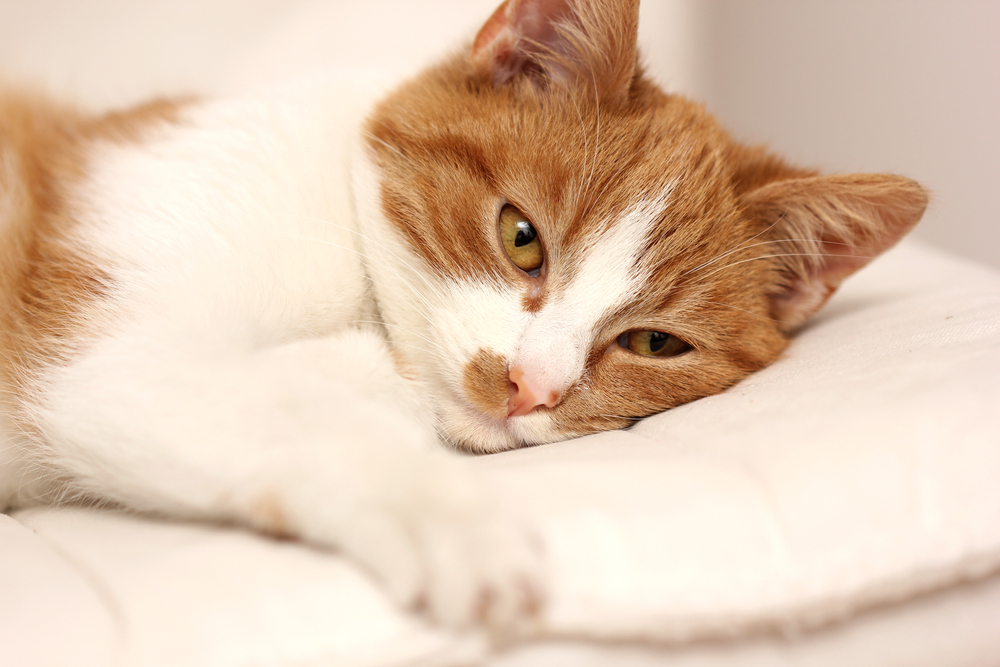
Not Sure if a Plant Is Toxic?
If you don’t already know with certainty whether a plant is safe or toxic to cats, the Poisonous Plants resource at the ASPCA is a fantastic place to start. Do a search for the plant and find an overview that includes additional information, such as the scientific and common names for the plant. It will tell you whether the plant is toxic and, if it is, the symptoms it may cause.

Summary
Prayer plants are safe for cats and are a great addition to your home, office, or other indoor space where both you and your cat spend time. With so many benefits to keeping indoor plants, you should consider adding others as well but only after confirming they are non-toxic to your cat.
Many common houseplants can cause severe symptoms, but plant poisoning can be avoided with research and preventative steps. If your cat is ever exposed to a toxic plant, you have excellent resources for support, including a vet and the ASPCA Animal Poison Control Center.
Featured Image Credit: Firn, Shutterstock
